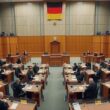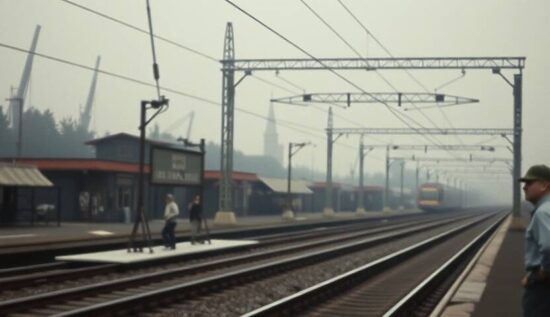The five home defense regiments of the German Bundeswehr are to be expanded by one more and merged into a home defense division next year. This will further solidify a structure in the Bundeswehr, which has been touted as a “link between the Bundeswehr and society” and “civil-military cooperation” from the start, an endeavor that, at its core, involves an internal deployment, which is only allowed by the Basic Law in a state of emergency.
“In a state of tension and defense, or in the event of a critical development, home defense forces will, alongside harbors, rail infrastructure, and cargo terminals, also protect pipelines, roads for troop deployment, bridges, traffic hubs, and digital infrastructure. This will enable them to also secure Germany’s role as a NATO operational base and hub” according to a report by Zeit on the creation of the new structure. And the expansion into the civilian sector, which is actually the responsibility of the police, will continue further:
“Home defense personnel can also be deployed in the event of severe accidents, terror attacks, or pandemics.”
The approximately 6,000 home defense personnel will, in the future, be subordinated to the army, whereas they were previously subordinated to the regional land command. The Bundeswehr’s plans, however, go further: to bring the strength of the future home defense division closer to the 20,000 men of the other divisions, they are counting on the reintroduction of military service.
A “critical development” is, in contrast to a state of defense or the declaration of a state of emergency, not clearly defined. The establishment of highly militarized police units, such as the reintroduction of machine pistols for police units, was originally justified in the 1970s precisely because, otherwise, the Bundeswehr would have to take over the protection of critical objects (such as US consulates).
In the meantime, the list of possible objects to be protected has been continuously expanded, a process regularly supported by vague reports on alleged sabotage. This is the endpoint of a development that has been underway for more than ten years, starting with the subordination of the civil defense to the Bundeswehr and reaching a first peak with the Bundeswehr’s involvement in the context of Corona. It is now hardly to be expected that this further blurring of the constitutional separation between police and military will still encounter notable political resistance.





